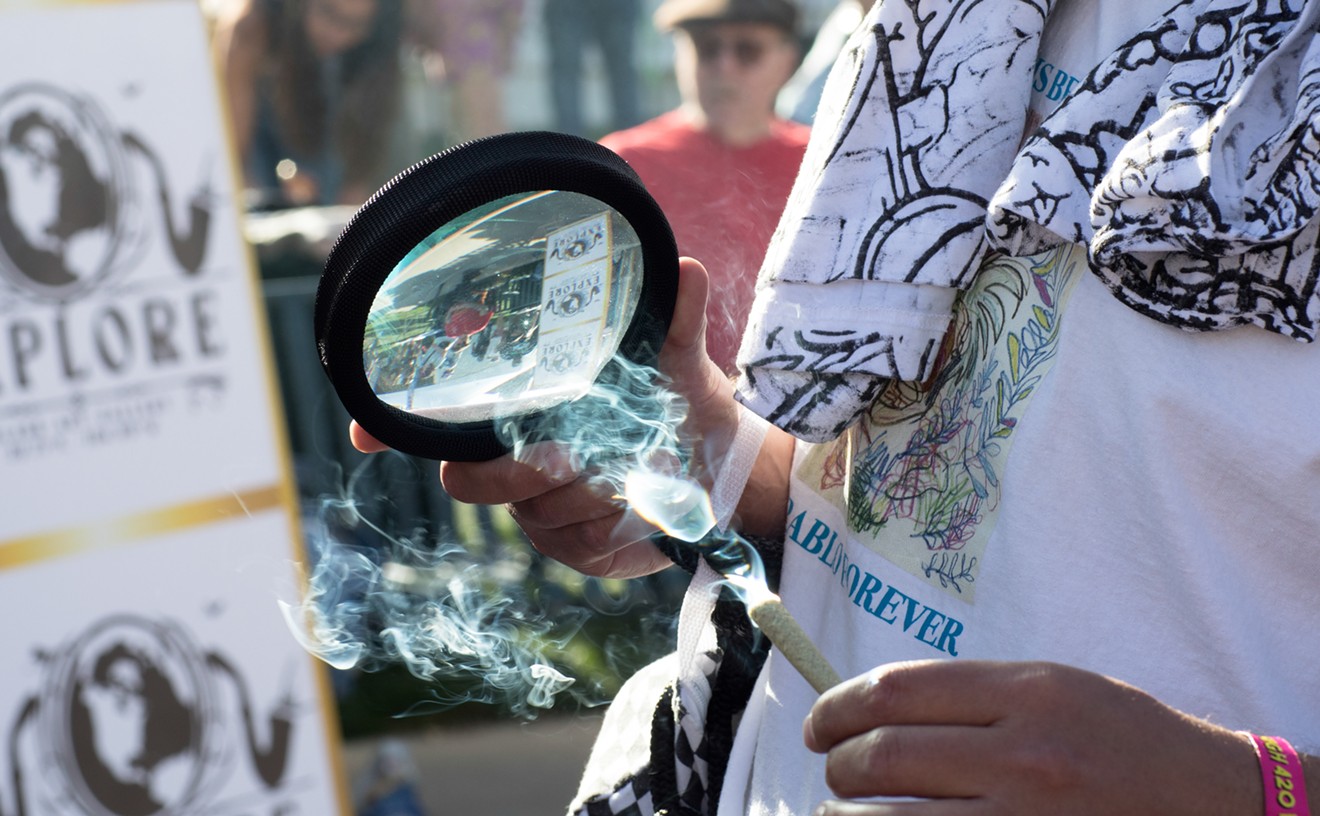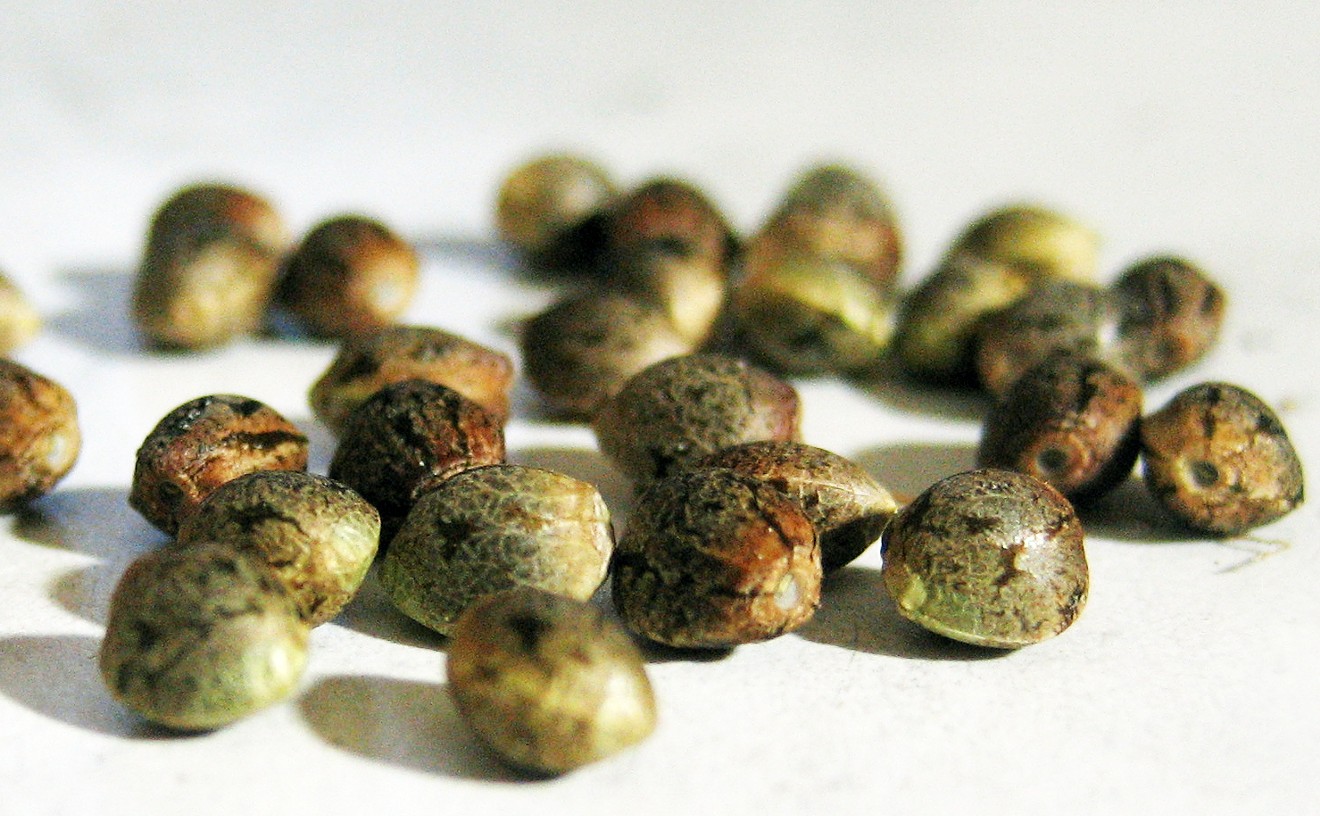The Marijuana Accountability Coalition and Smarter Approaches to Marijuana just released a report that grades Colorado's cannabis industry on eight factors, including youth-use prevention, black market sales and stoned driving; all eight received an "F" grade. The report card, presented with the Centennial Institute at Colorado Christian University, also dishes out failing marks for crime, hospital visits and minority arrests related to pot, as well as out-of-state diversion and illegal pot cultivations on public land.
Similar to a SAM report card on Colorado released in August 2017 — which gave the state an "F" in categories related to federal pot guidelines in the Cole Memorandum and called on United States Attorney General Jeff Sessions to crack down on Colorado pot businesses — the MAC report card is based on a compilation of data from local, state and national agencies that focus on drug prevention, public health and crime. And also like the SAM report card, it almost immediately received push-back from cannabis industry groups.
"Colorado is no longer desiring to be a state known for marijuana," MAC founder Justin Luke Riley said after unveiling the report card at CCU on Thursday, February 22. "This is just the beginning. We have a long road ahead of us."
MAC was relatively unheard of when Riley announced its launch at the downtown Ritz-Carlton on November 6, 2017, the same day that cannabis advocates were celebrating the fifth anniversary of Amendment 64's passing. At the time, Riley told Westword he was planning on more proactive statements and was intrigued by the thought of partnering with other organizations against commercial cannabis. He followed through with both, joining with the Centennial Institute as well as SAM, a national anti-cannabis organization headed by vocal pot hater Kevin Sabet, for a louder voice in his battle against commercial cannabis.
Among the assertions in the new MAC report:
- Colorado currently holds the top ranking for first-time cannabis use among youth, representing a 65 percent increase from 2014 to 2016, according to the National Survey on Drug Use and Health.
- Colorado cannabis arrests for African-American and Hispanic youth have increased since legalization, according to the Colorado Department of Public Safety.
- The annual rate of cannabis-related emergency room visits increased 35 percent between the years 2011 and 2015, according to the CDPHE.
- Colorado law enforcement confiscated 7,116 pounds of marijuana, carried out 252 felony arrests and made 346 highway interceptions of marijuana headed to 36 different states, according to the Rocky Mountain High Intensity Drug Trafficking Area.
- In 2017, the Boulder Police Department reported a 54 percent increase in citations for public cannabis consumption since legalization.
But, as with the SAM report card and previous announcements by the Centennial Institute, Colorado's cannabis industry quickly countered the MAC report with data of its own. In a statement sent to the media hours after MAC released its report, the Marijuana Industry Group outlined the tight regulations that the industry faces while also citing statistics that counter MAC's summary points, some of which come from the same agencies — besides the RMHIDTA, which has been criticized by media and government officials for its data-collecting methods.
"The legal marijuana industry has consistently worked in collaboration with state government, elected officials, law enforcement, community representatives, the patient community, local/municipal partners to advance a tightly regulated, inventory-controlled marketplace with rules governing security requirements, product safety/testing, pesticide restrictions, labeling requirements, child-resistant packaging and exit bags, and redundant age verification to ensure only state-legal consumers are able to access products," MIG responded. "State data demonstrates that the prevalence of marijuana use among Colorado high school students is lower than national averages."
Citing data from various CDPHE studies, MIG shared the following:
- Comparing 2015 Healthy Kids Colorado Survey estimates with those from 2013, there was no statistical difference in use among Colorado high school students.
- The prevalence of current marijuana use among high school students in Colorado has remained statistically higher than current tobacco smoking from 2011 through 2015 and has remained statistically lower than current alcohol use from 2009 through 2015.
Although the MIG report's narrative differs strongly from MAC's, they both agree that stoned driving and cannabis-related crime are increasing problems that should be addressed. But unsurprisingly, MIG doesn't think the state's future looks as dire as MAC does. In fact, its assessment is quite positive, and includes the fact that marijuana crime is down:
CCU and the Centennial Institute continued their public campaign against commercial cannabis on Friday, February 23, holding a "Pot or Not Debate" that was broadcast as part of the live programming for the 2018 Conservative Political Action Conference.













